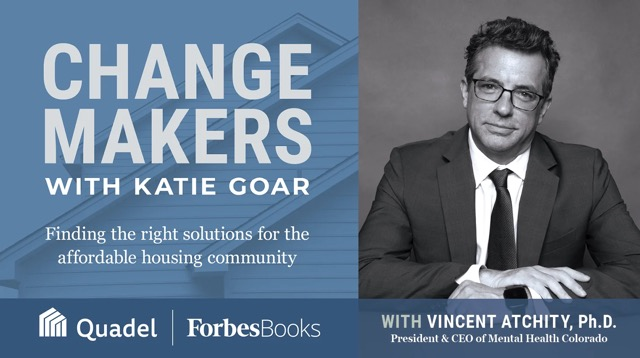Part 1: In this episode of ChangeMakers, Katie explores the complex intersection of mental health, housing instability, and substance use with Dr. Vincent Atchity, President & CEO of Mental Health Colorado. Dr. Atchity shares insights from his career in mental health advocacy, discussing how stable housing is crucial for mental wellbeing and the challenges faced by those experiencing homelessness. The conversation covers the current state of mental health care in Colorado and highlights the SAFER initiative in Arapahoe County, which provides support for individuals with mental health needs, substance use issues, and justice system involvement. Dr. Atchity also addresses the discriminatory history and cultural attitudes surrounding substance use, challenging listeners to reconsider common assumptions. He emphasizes the need for a more nuanced understanding of mental health and substance use in society, highlighting how these issues are intertwined with poverty, race, and class. This thought-provoking episode offers valuable insights for anyone interested in public health, social justice, and community wellbeing.
Part 2: In this continuation of ChangeMakers with Katie Goar, Dr. Vincent Atchity, President & CEO of Mental Health Colorado, delves deeper into the complex relationship between mental health, housing, and criminal justice. Dr. Atchity discusses the “Care Not Cuffs” initiative, emphasizing the need for a shift from over-criminalization to a more supportive, health-focused approach. He explores the concept of “Housing First” and its importance in addressing homelessness, while also touching on the challenges faced by various demographics, including families, youth, and the elderly. The conversation covers recent legal decisions affecting homeless encampments, potential changes in housing access policies, and the need for a more comprehensive national housing strategy. Dr. Atchity concludes by sharing success stories that demonstrate the positive impact of combining proper mental health support with housing stability, highlighting the potential for reducing reliance on crisis interventions and improving overall community well-being.
